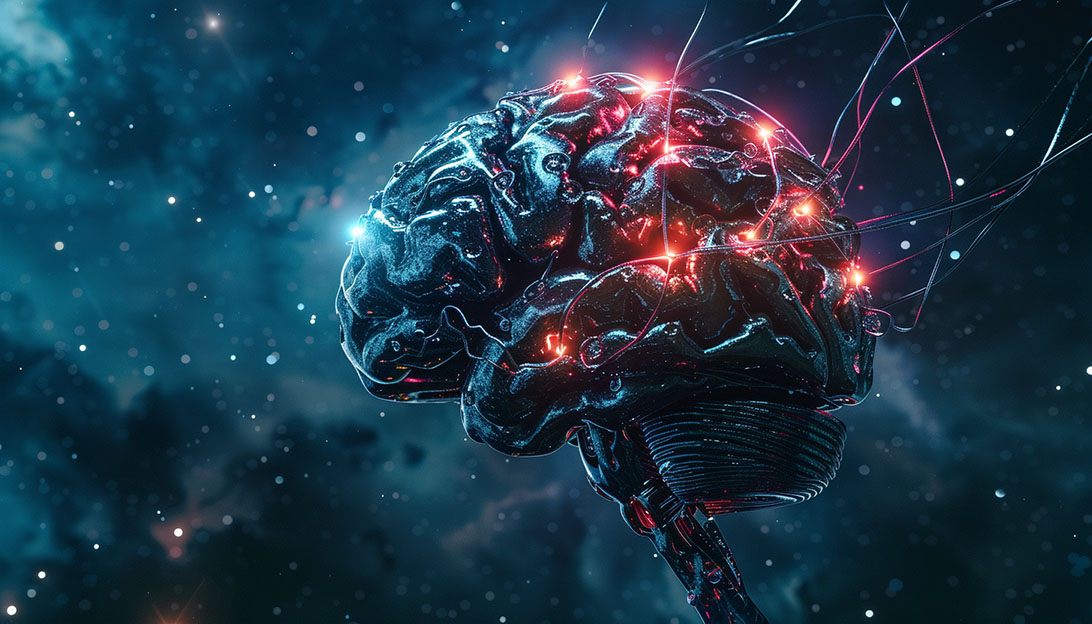Play the game Human or Not. While Artificial Intelligence (AI) and Machine Learning (ML) have made significant advancements in recent years, they are not actual replacements for the human brain due to several inherent deficiencies.
Today we will explore these deficiencies in detail, emphasizing the unique capabilities and complexities of the human brain that AI and ML struggle to replicate.
Fundamental Differences
One fundamental difference between AI/ML systems and the human brain is their approach to learning and problem-solving. So let us dig deep and explore the question at hand, human or not? AI/ML algorithms are designed to operate within specific parameters and excel at tasks with well-defined rules and objectives. They rely on large datasets to learn patterns and make predictions but lack the intuitive understanding and adaptability of the human brain.
The human brain, on the other hand, possesses remarkable cognitive abilities, including creativity, abstract thinking, and emotional intelligence. It can make sense of ambiguous or incomplete information, draw connections between seemingly unrelated concepts, and adapt to new situations rapidly. These capabilities enable humans to excel in tasks requiring innovation, empathy, and nuanced decision-making—areas where AI/ML often fall short.
Human or not? Definitely not.
One significant deficiency of AI/ML systems is their inability to truly understand context and meaning. While they can analyze and process vast amounts of data, they struggle to grasp the subtle nuances of human language and behavior. Natural Language Processing (NLP) algorithms, for example, may struggle with sarcasm, metaphor, or cultural references that humans effortlessly understand. This lack of contextual understanding limits the applicability of AI/ML in tasks that require deep comprehension of human communication and interaction.
Bias and error evaluation
Human or not, there will always be defects built-in. AI/ML systems are susceptible to bias and errors inherent in their training data. They learn from historical data, which may reflect existing societal biases or inaccuracies. As a result, they can perpetuate and even exacerbate inequalities and injustices, especially in sensitive domains like healthcare, finance, and criminal justice. The human brain, while not immune to biases, has the ability to critically evaluate information, challenge assumptions, and make ethical judgments—a capacity that AI/ML currently lack.
Another deficiency of AI/ML systems is their lack of consciousness and self-awareness. While they can perform complex tasks and mimic human behavior to some extent, they lack subjective experience and genuine understanding of the world. Consciousness is a multifaceted phenomenon involving subjective experience, self-awareness, emotions, and introspection—qualities that arise from the intricate neural networks and biochemical processes of the human brain. Without consciousness, AI/ML systems are fundamentally limited in their ability to perceive and interact with the world in meaningful ways.
Furthermore, AI/ML systems lack the ability to innovate and create in the same way humans do. While they can generate new solutions based on existing patterns and data, they cannot engage in true creativity or original thought. Creativity is a hallmark of human intelligence, allowing us to invent new technologies, produce works of art, and solve complex problems in novel ways. The human brain’s capacity for imagination, curiosity, and exploration far exceeds that of current AI/ML systems, making it indispensable in domains requiring innovation and ingenuity.
Human brain resiliency
Additionally, the human brain possesses remarkable adaptability and resilience, allowing us to learn from experience, overcome challenges, and continually improve our cognitive abilities. Neuroplasticity—the brain’s ability to reorganize and form new neural connections in response to learning or injury—is a key factor in human learning and development. AI/ML systems, in contrast, lack the same degree of adaptability and flexibility. Once trained on a specific dataset or task, they may struggle to generalize to new situations or environments without extensive retraining.
The human brain’s integration of sensory information and motor control enables us to navigate and interact with the physical world in ways that AI/ML systems cannot replicate. Our sensory systems provide rich feedback about our environment, allowing us to perceive depth, texture, color, and motion with incredible precision. This sensory-motor integration underlies our ability to perform complex tasks such as driving a car, playing a musical instrument, or manipulating objects with dexterity and finesse—skills that remain beyond the reach of current AI/ML technology.
In conclusion, but not the end
While AI and ML have made remarkable progress in recent years, they are not actual replacements for the human brain due to their inherent deficiencies. Human or not, the brain possesses unique cognitive abilities, including creativity, empathy, consciousness, and adaptability, which are currently beyond the capabilities of AI/ML systems. While AI/ML excels at certain tasks with well-defined rules and objectives, they lack the intuitive understanding, contextual comprehension, and subjective experience that characterize human intelligence. As AI/ML continues to advance, it is essential to recognize and appreciate the distinct strengths of the human brain, ensuring that AI technology is developed and deployed in ways that complement and augment human abilities rather than seeking to replicate or replace them entirely.
Read more or listen in with this great audio book from Reid Blackmon. Ethical Machines: Your Concise Guide to Totally Unbiased, Transparent, and Respectful AI
Or visit our list of best reads for the topic of Artificial Intelligence and Machine Learning ethics.
1 2 3 4 5 6 9 AI AI news ant art Artificial Intelligence automation borrow borrow a minute chatgpt coffee break Control Fiction fire water bean fiscal responsibility hit how many minutes How many minutes in a day how many minutes in a month how many minutes in a week how many minutes in a year Immersive Innovation ISS Machine Learning mental break minute fiction minute read model R rain risk SaaS short blog short story skannar story Trust where am I now


